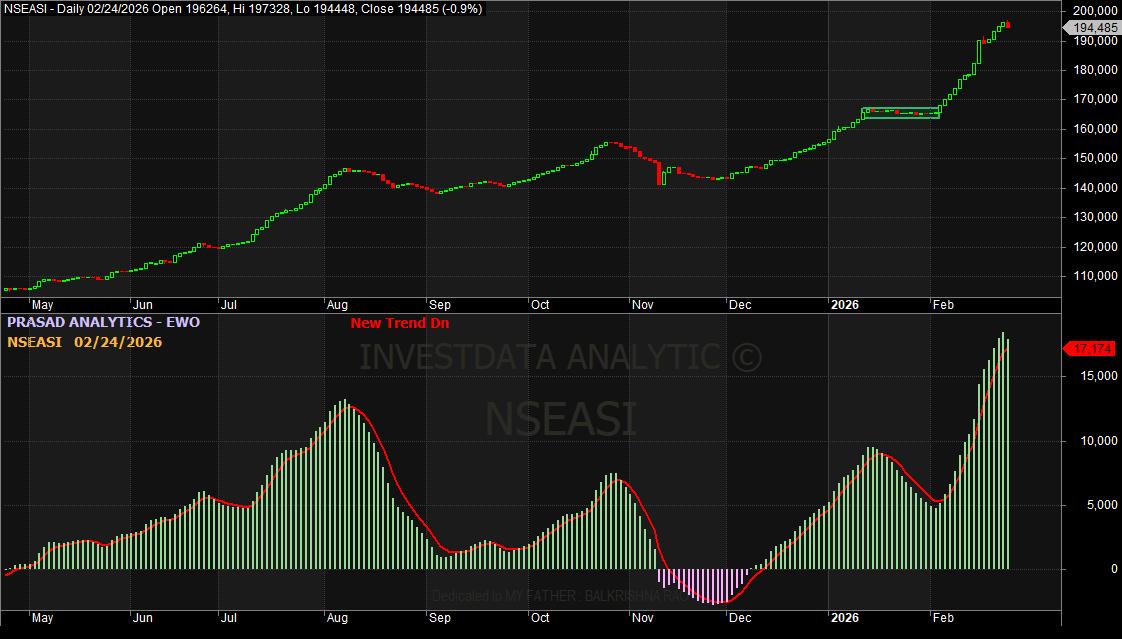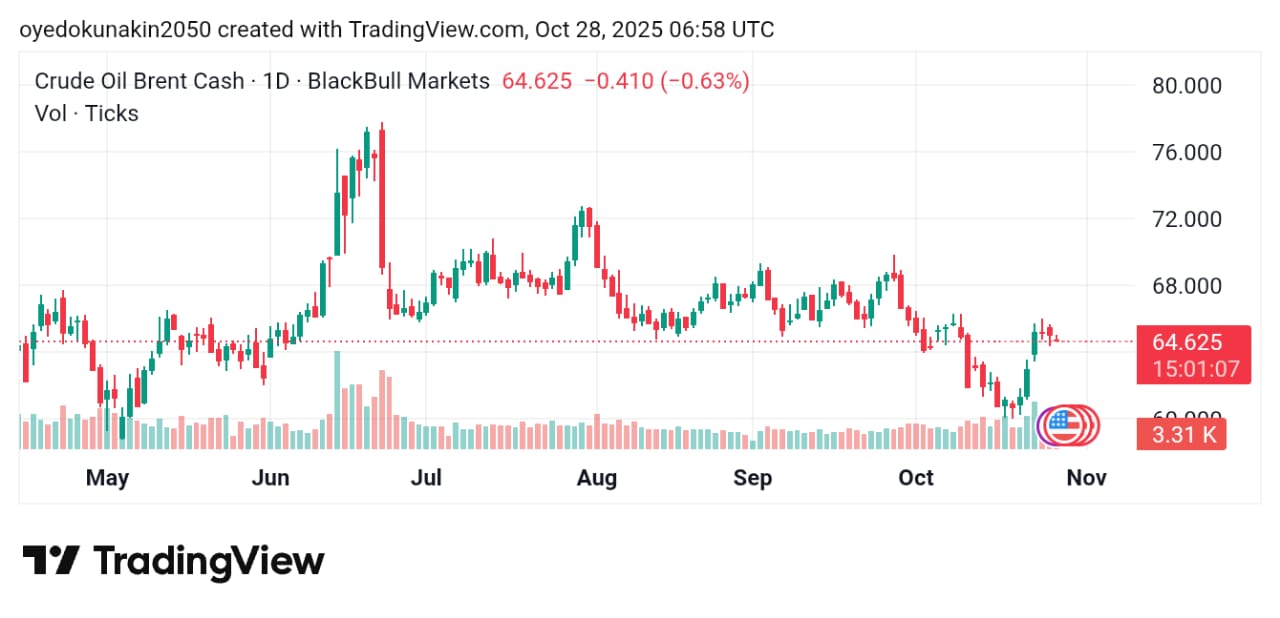
Akintunde Oyedokun
Research Analyst
Oil surged nearly 2% Wednesday, hitting a two-week high as U.S. sanctions on Chinese buyers of Iranian oil stirred supply concerns. Brent settled at $65.85, and WTI at $62.47. The sanctions coincide with U.S.-Iran nuclear talks, though Iran remains firm on uranium enrichment. OPEC+ support also lifted prices, with Iraq and Kazakhstan planning further cuts to meet quota targets. U.S. crude inventories rose slightly, while fuel stocks dropped. Gains eased after Fed Chair Powell warned that escalating tariffs on China could slow growth and raise inflation.
UK Inflation Eases To 2.6%, Amid Rising Costs, Looming Trade Risks
UK inflation slowed to 2.6% in March, down from 2.8%, as fuel and gaming prices fell. However, higher utility bills and taxes could push inflation back up, with forecasts suggesting a rise to 3% in the coming months.
The U.S. trade war adds further uncertainty, and markets are now predicting a rate cut by the BoE in May. Services inflation also eased, reflecting a cooling in price pressures, but economic challenges persist.
U.S. Retail Sales Surge Amid Tariff Fears, As Economic Growth Remains Sluggish
U.S. retail sales rose 1.4% in March, marking the largest increase in over two years, as consumers rushed to buy motor vehicles and other goods ahead of rising tariffs. The surge, driven by a 5.3% jump in auto sales, helped sustain the economy in the first quarter, though economists project growth remains sluggish, below 0.5% for January-March. With a volatile economic outlook and ongoing tariff changes, experts expect the strong sales momentum to fade in the coming months, possibly leading to reduced demand and stagnation.
South African Business Confidence Dips In March, But Remains Higher Than 2024
Business confidence in South Africa experienced a dip in March, according to the latest data released on Wednesday. The South African Chamber of Commerce and Industry’s Business Confidence Index (ZABCI) registered 123.5 in March, down from 125.8 in February. However, it was still an improvement over January’s figure of 120.0.
The chamber publishes the index every two months and highlighted that despite the recent decline, the index was 8.8 points higher in March compared to the same period last year.
Nigeria’s Inflation Soars to 24.23% in March Amid Rising Living Costs
Nigeria’s inflation rate rose to 24.23% in March 2025 from 23.18% in February, driven by higher food, fuel, and transport costs, according to the National Bureau of Statistics. Monthly inflation climbed to 3.90%, while core inflation hit 24.43%. Food inflation stood at 21.79%, with price increases in staples like garri, rice, and pepper. Analysts warn that recent naira depreciation and rising petrol prices could push inflation even higher in the coming months.









